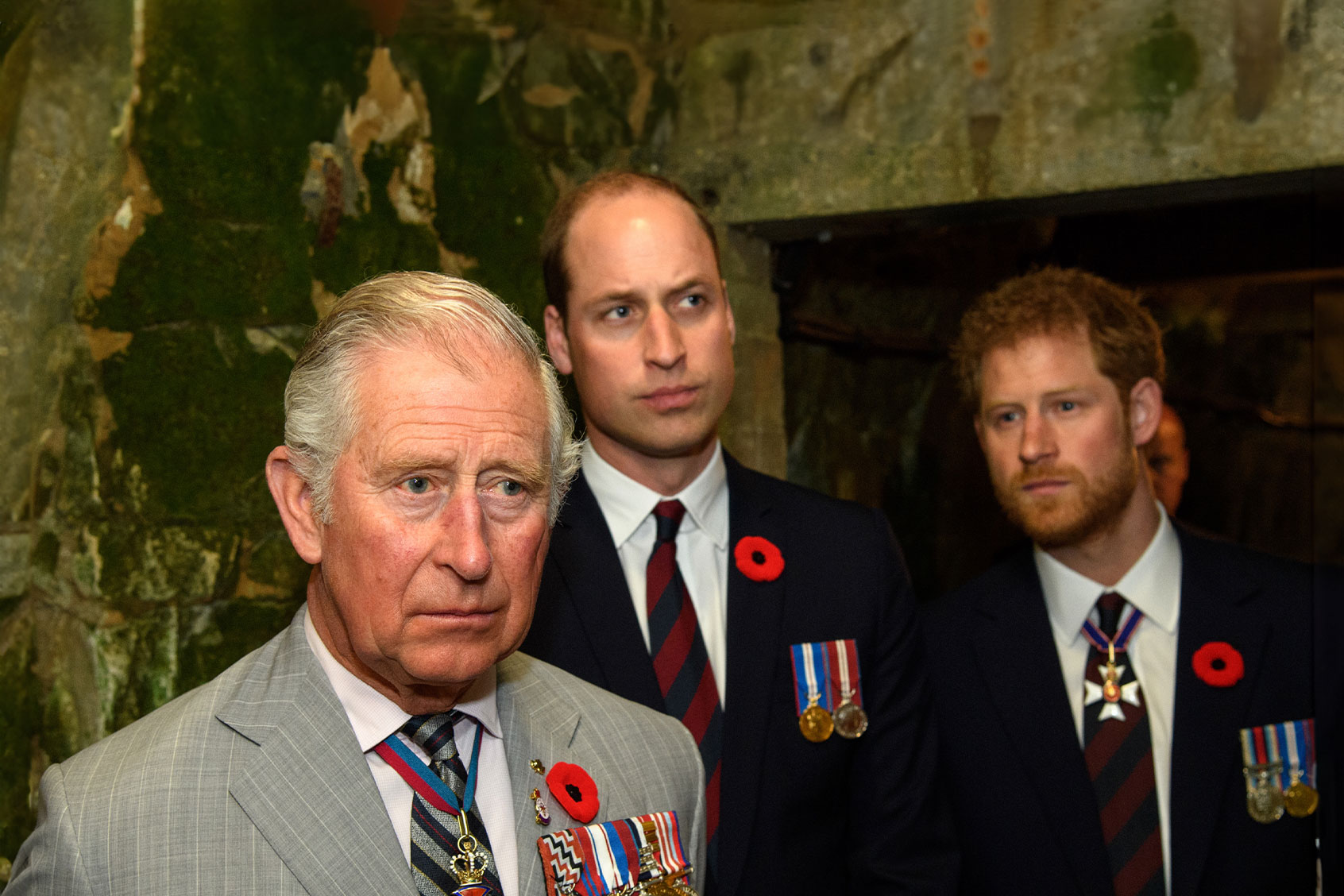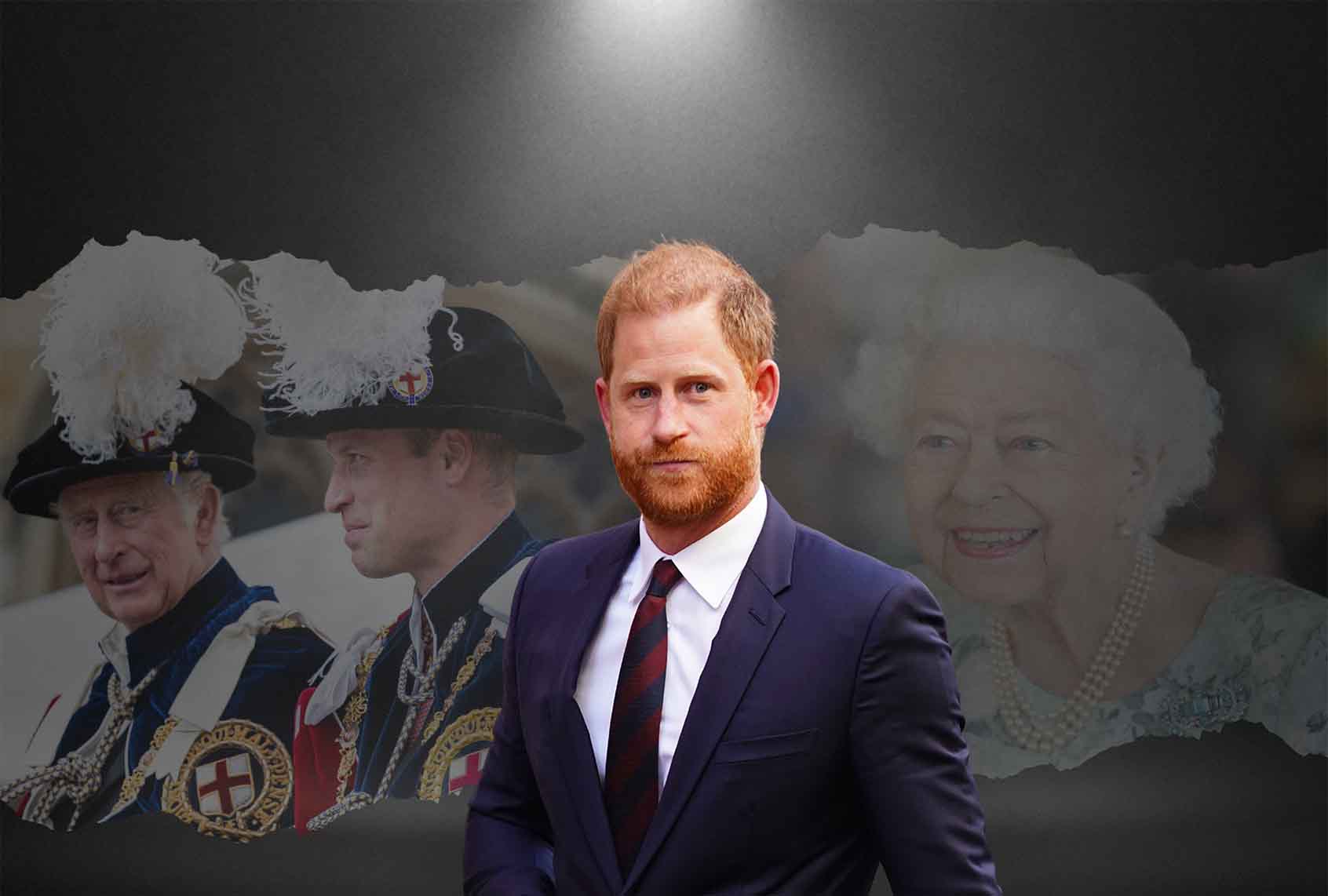"I would love reconciliation with my family." It's a poignant statement from anyone dealing with family estrangement, but one that carries particular candor when it's coming from a prince. In a recent interview with the BBC, Prince Harry acknowledged that his father, the king, "won't speak to me," and expressed the belief that "there's no point continuing to fight any more." It was a vulnerable confession from the most rogue royal, whose wife, Meghan, has a similarly volatile relationship with her own father. But while family fractures like Harry's can undoubtedly be a source of deep pain, plenty of us also know that sometimes, having a continent between your relatives and you is just fine.
One-quarter of Americans say they have cut ties with a family member.
The maxim that blood is thicker than water may hold true in a laboratory viscosity test, but human relationships are far more complicated, and estrangement is commonplace. A 2020 study by Cornell professor Karl Pillemer found that over one-quarter of Americans say they have cut ties with a family member like a parent or sibling. Most of Pillemer's respondents reported feeling "upset" over that state of affairs, and honorary American Harry, who's also on the outs with his brother William, seems to be among them. In his 2023 memoir "Spare," he said that the "door is always open" but that the "ball is in their court." The stakes to Harry now undoubtedly feel higher, with his father's cancer diagnosis and ascension to the throne. "I don't know how much longer my father has," Harry told the BBC of the 76-year-old monarch.
I've experienced estrangement in my own family, and in entirely related disclosures, have also obtained a degree in conflict resolution. And what I've learned from my experience and education is that conflict is healthy and that resolution doesn't always mean one big happy family.
In negotiation, we talk about best alternatives to negotiated agreements and worst alternatives, BATNAs and WATNAs. The concepts boil down to, if this conflict can't be worked out agreeably — and that may be because one side refuses to engage — what are my other options?
 Prince Charles, Prince of Wales, Prince William, Duke of Cambridge and Prince Harry tour a tunnel made during WWI during the commemorations for the 100th anniversary of the battle of Vimy Ridge on April 9, 2017 in Lille, France. (Pool/Samir Hussein/WireImage/Getty Images)Taylor Swift's dispute with Scooter Braun is a good example of a BATNA. When she wanted to buy the masters of her first six albums from her former label, Big Machine, their terms for her to do so were unacceptable to her. So she started rerecording and rereleasing them on her own, creating an outside-the-box plan that didn't involve them.
Prince Charles, Prince of Wales, Prince William, Duke of Cambridge and Prince Harry tour a tunnel made during WWI during the commemorations for the 100th anniversary of the battle of Vimy Ridge on April 9, 2017 in Lille, France. (Pool/Samir Hussein/WireImage/Getty Images)Taylor Swift's dispute with Scooter Braun is a good example of a BATNA. When she wanted to buy the masters of her first six albums from her former label, Big Machine, their terms for her to do so were unacceptable to her. So she started rerecording and rereleasing them on her own, creating an outside-the-box plan that didn't involve them.
In the case of family estrangement, if all sides involved are open to clearly and honestly articulating what they want from their relationship and why they want those things, there can be a path forward if those positions and interests align. Estrangement doesn't have to be all or nothing, either. Without necessarily formalizing the terms, families regularly work out a spectrum of options and boundaries around how much contact to have with each other. However, as is evidently the case with King Charles and Prince Harry, if one or both sides aren't invested in any reconciliation, it's up to the estranged parties to explore what their best and worst outcomes look like on their own.
We need your help to stay independent
Back when I was navigating through the years of my mother's disappearing act, wishing that she was the kind of parent who would answer my calls, I had to learn to embrace the wisdom that "sometimes you have to get closure all by yourself." I recognized it the first time I read the passage in Cheryl Strayed's "Wild," in which she tells her therapist, "Imagine my life if I'd been raised by my father," and he counters, "Imagine your life if you'd had a father who loved you as a father should." I can't think of an exchange that better encapsulates the difference between a best-imagined option and a best-attained one. When a parent can't or won't love a child as they should, having them out of the picture may be as good as it gets.
There are a multitude of reasons that families crack apart. Sources within the palace have told the press that Charles is avoiding his son because he doesn't want to be drawn into Harry's legal battles with the palace over his security detail. The king has conspicuously found himself "too busy" to see his own son on Harry's periodic recent trips back to the United Kingdom, but the conflict between them and the seemingly conditional nature of their relationship goes back years. Harry didn't call his memoir "Spare" for nothing — in it, he writes, "I was the shadow, the support, the Plan B. I was brought into the world in case something happened to Willy…. This was all made explicitly clear to me from the start of life's journey and regularly reinforced thereafter."
"The scapegoat is not only the one who's perceived to be the villain of the family, but their truth-telling is perceived as betrayal."
As Eamon Dolan, the author of the new book "The Power of Parting: Finding Peace and Freedom Through Family Estrangement," noted to me recently, "Dysfunctional families are driven into a specific set of roles," which can include abuser, enabler, golden child and scapegoat. So what happens when a spare doesn't want to play the part any longer? "I believe Harry falls very much into that rubric," Dolan said, "because the scapegoat is not only the one who's perceived to be the villain of the family, but their truth-telling is perceived as betrayal."
And in the negotiation of family dynamics, demands for compliance, whether spoken or unspoken, are a common bargaining chip. The price of disagreement can be ostracism. Dolan told me that, "This notion is thrust upon us that family is some sort of absolute, that you can only love them in one way, and that way is by putting up with whatever they make you endure. That's not true." It's also just a bad deal.
At least for now, Charles and Harry have made what looks like a clear choice to cut ties, while William appears painfully still in the thick of it. And if you've ever worn yourself out talking to a brick wall, you'll have eventually come to the sobering realization that the wall isn't going to answer you.
Estrangement, whether it's because a family member has cut ties or you've made the difficult decision to do so yourself, can be heartbreaking. Those primal, instinctive bonds pack a wallop when they're severed. But estrangement can also make space for cultivating more nurturing relationships, breaking cycles of dysfunction and modeling healthier dynamics for our kids. In a case like Prince Harry and his family, sometimes the best available outcome of a difficult problem is only possible when the other party won't even come to the table.
Read more
about the royals


